I’ll be honest. Hong Kong never particularly appealed to me as a place to visit. (Meh! It’s a city.) But I’ve always found it curious that everybody I know who has been there absolutely loves it.
Now I know why.
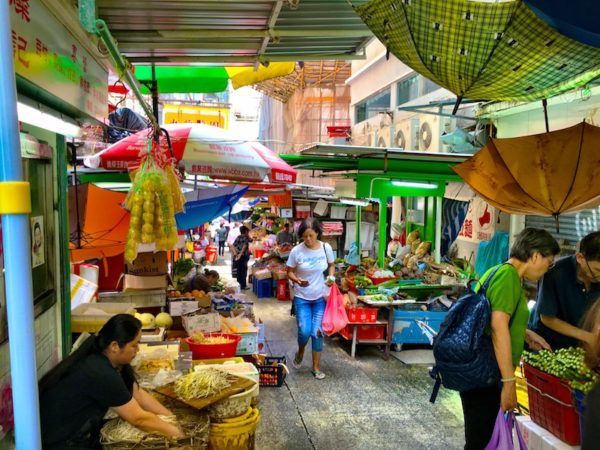
This post was originally written in 2017, and has since been updated for accuracy of links and content.
Hong Kong: The Good
There are plenty of things to like about Hong Kong, like the cheap and efficient transportation system, well-priced high-quality food, rampant shopping opportunities, and a neon vibe. Here are some of the many reasons why Hong Kong struck a chord in me, and why I’m grateful to have had the chance to pass through for a week (enroute to a speaking gig in Macau).
The Food.
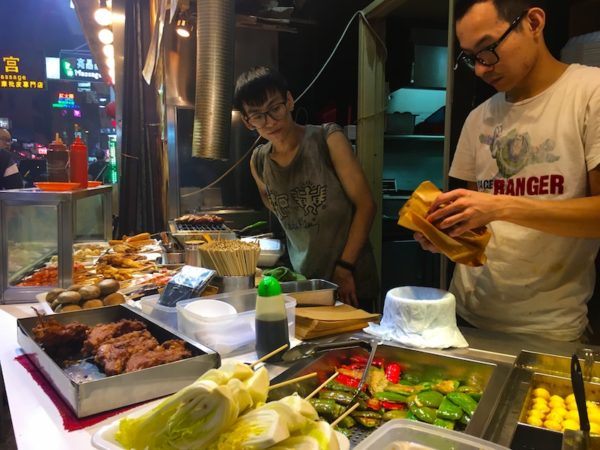
Having grown up with a love of Asian food in general, Hong Kong was my foodie heaven. Obviously Chinese dishes like BBQ meats and dim sum were ubiquitous, but so too were other Asian cuisines such as Japanese, Vietnamese, Malaysian, and Thai. Dim sum and sushi being two of my absolute favourite foods, I ate one (or both) at least once per day.
And, I’m delighted to report that eating out in Hong Kong doesn’t have to be expensive (more about the cost of living in Hong Kong below). In fact, because accommodation in Hong Kong is so restrictive (more on that later as well), eating out is actually a necessity for some. Which means, if you know where to eat, you can get a proper meal for $30-50 Hong Kong Dollars ($4-6USD).
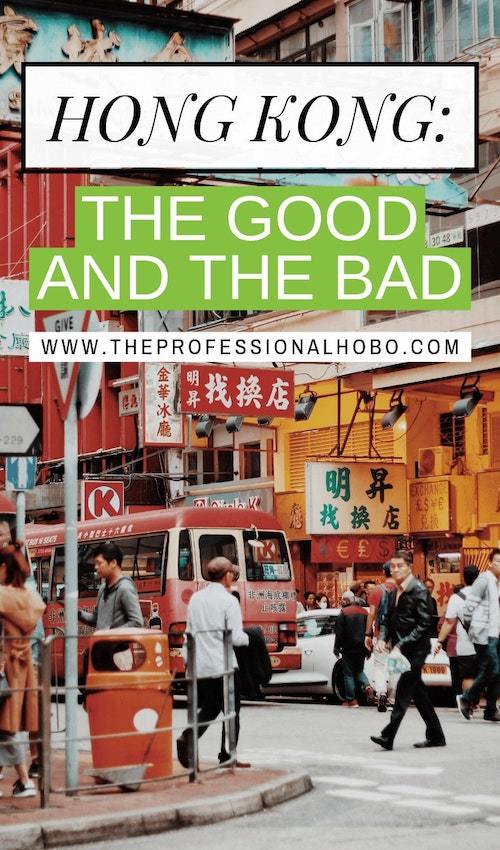
Food, Part 2: Inexpensive Michelin Star Rated Food.
I ticked off a few Michelin-rated snack shops on this list, including Kai Kai Desserts (I loved the sweet ginger soup with rice balls ($2.50US) so much that I returned…twice), Mammy Pancake (which also received an encore visit), and I gawked in the window of Owl’s Choux and Gelato but decided it wasn’t “Asian enough” to justify the addition to my waistline and reduction of my wallet.
The Contrast of Old and New.
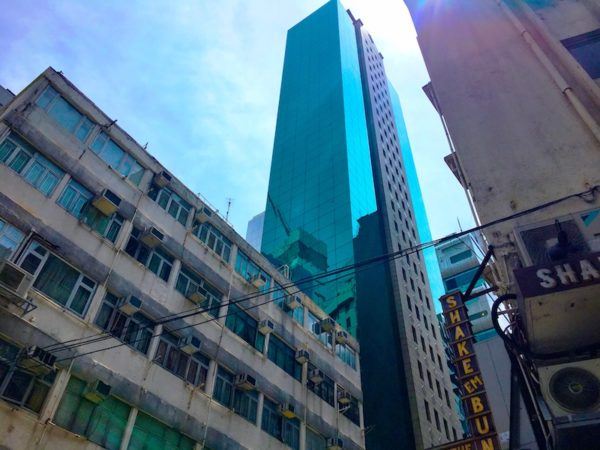
Next to a shiny new skyscraper sits an old dilapidated apartment building. Sitting underneath towering buildings is an ancient looking temple. The contrast of old and new is rampant in Hong Kong; although apparently some places that look old (like the dilapidated buildings) aren’t particularly ancient; Hong Kong’s characteristic humidity does a great job of wearing and tearing.
Some Pretty Cool (and Funny) Feng Shui.
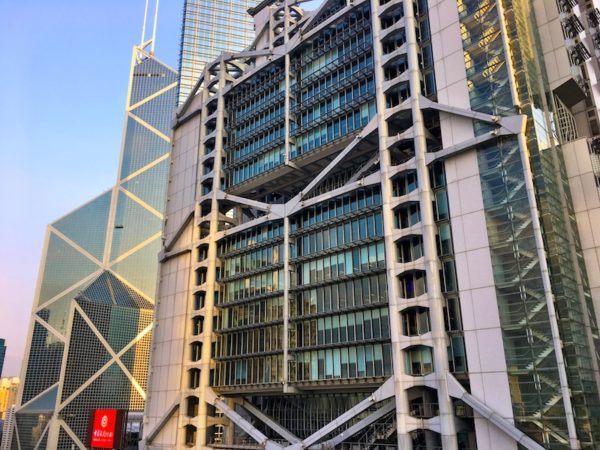
One of the more informative and enjoyable activities I did in Hong Kong was to take a free walking tour offered by a colleague and friend of mine: Virginia of Humid With a Chance of Fishballs (yep – not a typo). During the tour, she shared various interesting pieces of trivia, but the following story was my favourite:
Feng Shui is a very important concept in Hong Kong (and to a larger extent, China); so important that whenever a building is being designed, a Feng Shui consultant must analyze the architect’s plans.
The picture you see above is of two of Hong Kong’s big banks: HSBC (on the right), and Bank of China (on the left). Virginia went into great detail about how the HSBC building met the feng shui consultant’s requirements; the symmetry, the arrows pointing up, the use of space, etc was all perfect. The consultant actually said that building was a bit too symmetrical and perfect, which inspired the giant atrium at the bottom, with two off-centre escalators taking visitors up to the lobby – a gorgeous piece of design work unto itself.
Then we turned our attention to the Bank of China (which houses the stock exchange), which you might surmise is very feng shui’d up, given how pretty and shiny it is. It isn’t. The designer (the same fella who designed the Louvre in Paris) refused to use a feng shui consultant, and as a result all kinds of things are wrong with the place. This is serious stuff; apparently the very same week this building opened, the stock market crashed.
It gets better. The HSBC building is not only next to the Bank of China, but it’s sandwiched between competitors with the Standard Bank on the other side. So HSBC’s final stroke of brilliance, in the face of being surrounded by competitors (with some bad feng shui juju no less)….was to build some maintenance cranes on top of the building. But these maintenance cranes don’t look like any such cranes anywhere else. They look like cannons. Two sets of cannons, pointing directly at the buildings on either side.
I found this story absolutely hilarious. I mean – can you imagine! What a fabulous sense of humour – a big serious bank constructing cannons pointing at neighbouring competitors! What’s even more funny to me, is that it was probably done 100% stoically and seriously, in the name of feng shui.
OMG The Nature!
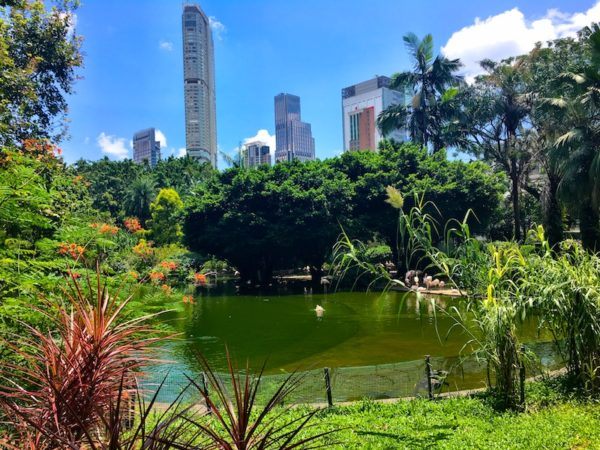
Unfortunately – and anybody who knows Hong Kong will agree this is a great travesty – the picture above is as close as I got to Hong Kong’s nature. (This is Kowloon park; a giant park – aviary and flamingos and everything – built atop a shopping centre). Although this park is pretty, it doesn’t even come close to the sort of nature that exists in Hong Kong.
Most people wouldn’t think of Hong Kong as a hiking destination. I didn’t; instead of hiking boots, I packed city slickers and hit the concrete jungles. Big mistake.
Of Hong Kong’s 1,100 square kilometres, 75% of it is countryside, much of it completely undeveloped. 40% of Hong Kong is designated park/nature reserve. A 10-minute taxi ride from just about anywhere in the city will take you to some sort of hiking trail. When a friend found out through Facebook that I was in Hong Kong, he sent me a note with pictures and recommendations from his own hiking experiences that made me immediately regret not doing more research before my trip. He summed it up perfectly by saying Hong Kong is “a megalopolis dropped incongruously into a spectacular national park”.
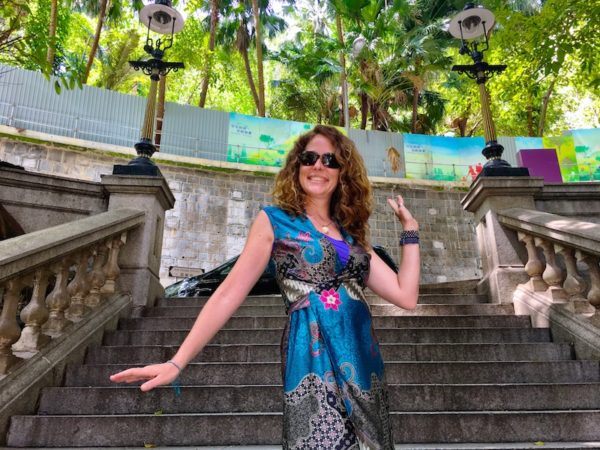
Hong Kong: The Bad
Although I loved Hong Kong way more than I expected to, it wasn’t perfect (by far). Here are some of my beefs with the place:
The Accommodation.
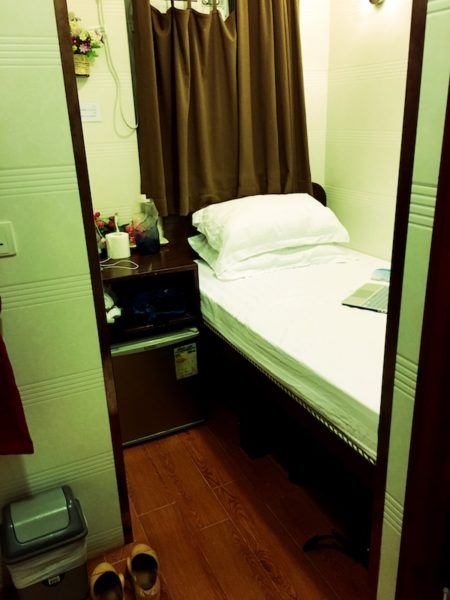
Given that 75% of Hong Kong is countryside, that leaves a ridiculously small amount of space to fit 7.5 million people. Thus, it’s a vertical city. Everything is built up into the sky, and down into the ground. And the amount of space allotted to each person is laughably small.
I knew beforehand that my room would be tiny, but it was still a shock to open the door to this small windowless room (don’t be fooled by the curtain); the window was something of a sham. I booked my room at the HK Peace Guest House after receiving a personal recommendation and reading some stellar reviews. And indeed it lived up to the description; the location was terrific, it was clean, and the owner/manager takes very good care of the place and guests.
But it wasn’t exactly a place that inspired a “homey” feeling. Nor was it cheap.
Search here to find some Hong Kong accommodation deals, and to see how HK Peace Guest House measures up (and how much you should budget for your accommodation in Hong Kong)!
Booking.comAccommodation, Part 2: Adjusting my Idea of a “Nice Area”.
Another matter entirely was the building my accommodation was located in; another shocker. In many other places in the world, it would be considered a slum. In the Tsim Sha Tsui area of Hong Kong, the Mirador Mansion is a good step above many of its neighbours.
This, in an email from a friend of mine about his own Hong Kong experience 30 years ago, staying in the neighbouring Chungking Mansion (a renowned hellhole):
…I had dreams about it for years afterward… Now, I can’t be sure if some things actually happened or not… but, I DO know there were plenty of lowlifes, junkies, dealers, mobsters and perverts there…
Chungking – and Tsim Sha Tsui in general – has cleaned up significantly since my friend visited a few decades ago. Although I’m sure a seedy underbelly still exists, it’s not immediately evident. Instead, the lowlifes, junkies, dealers, and mobsters have been replaced by Sri Lankan tailors. I lost count of how many times I was approached (dozens? Hundreds?) by Sri Lankans (who were specifically targeting white people, interestingly enough) offering custom tailor services. And I had to fight my way past many them just to get to the elevators in my building. Although it might sound like I’m complaining, I’m not (particularly); to me it merely added to the flavour of the place.
It’s worth noting that most expats live on and visit the “Central” island of Hong Kong, south of Tsim Sha Tsui. It’s much more modern and spiffy, as it’s also the financial and business district of Hong Kong. Tsim Sha Tsui is a bit more “old school”, and tends to appeal to a different kind of tourist. Like, the kind who can’t bear to pay more than $50/night for accommodation. (Having said that, don’t be fooled; Tsim Sha Tsui has more than its share of $150+/night places to stay).
The Confusing Cost of Living.
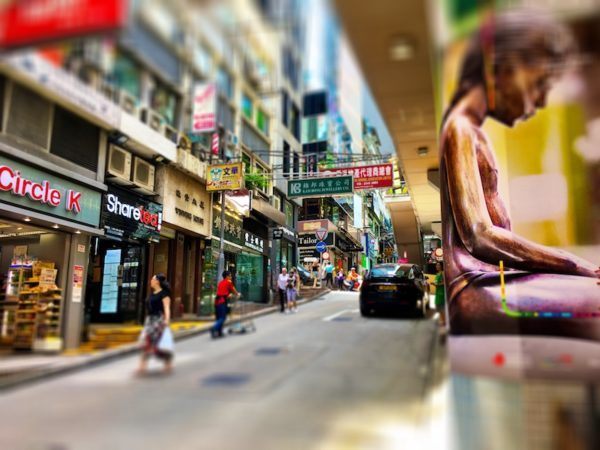
Perhaps I was disappointed by my room because of the amount of money I was paying for it. I mean, I knew it would be small and in a building of questionable condition, but for $50/night, I expected more.
I was wrong. Depending on the measuring stick you use, Hong Kong consistently hits the top three of all the lists of most expensive cities in the world. I found this a tad confusing however, given that some things in Hong Kong are still quite cheap, like transportation and (some) food and (some) shopping. In fact, the Tsim Sha Tsui neighbourhood is renowned for the Chinese tourists who visit in droves with big empty rolling suitcases, just to buy stuff.
But in digging a bit deeper, I discovered that Hong Kong is a very difficult place for the average person to get by; largely due to the cost of accommodation. A local Hong Kongese friend told me that as a young person starting out in their career, it’s almost impossible to survive. The average salary for somebody in marketing is $10k/month (less than $1,300USD), which wouldn’t even cover rent if you live alone. Thus, many young people continue to live with their parents, or share (undersized) places with multiple roommates. Their parents’ generation didn’t suffer the same problems; in their day salaries were commensurate, and they could afford to buy a place.
The Crowds.
Given my general dislike for cities, it stood to reason that by the end of my week in Hong Kong, I was ready to leave, much as I liked the place.
This wasn’t helped by the densely populated neighbourhood where I was staying. I was surprised when a Hong Kongese friend expressed her distaste for “mainlanders” from China (an apparently common sentiment in Hong Kong); she said they’re generally disruptive and disrespectful. She alluded to Chinese tourists always rolling their shopping-filled suitcases over her foot as a random example. Although I don’t care to jump into this little feud, by the end of the week, I must say I was pretty sick of doing the sidewalk dance with so many people (and suitcases).
Let’s End This on a Good Note.
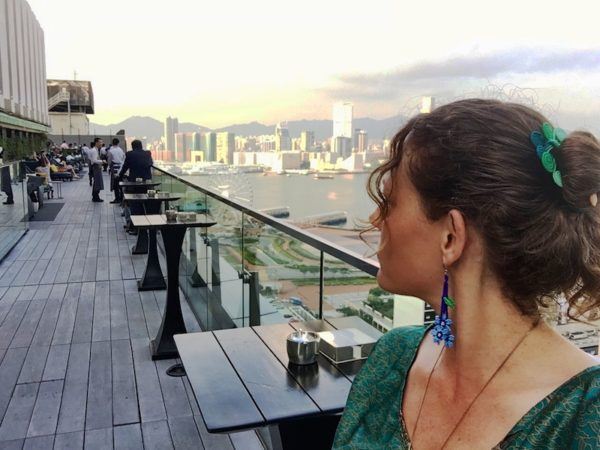
Every place is good and bad. Up and down. Bright and dark. Hong Kong is no exception. My mission whenever I visit a place is to get an understanding of both. Ta-dah! Mission accomplished. Some of the things that bothered me wouldn’t bother other people, and vice versa.
Despite my beefs with the place, I will reiterate that Hong Kong surprised me by how much I liked it. I would return in a heartbeat. Next time though, I’ll bring my hiking shoes. And ideally I’ll have some sort of free accommodation. (Stranger things have happened).
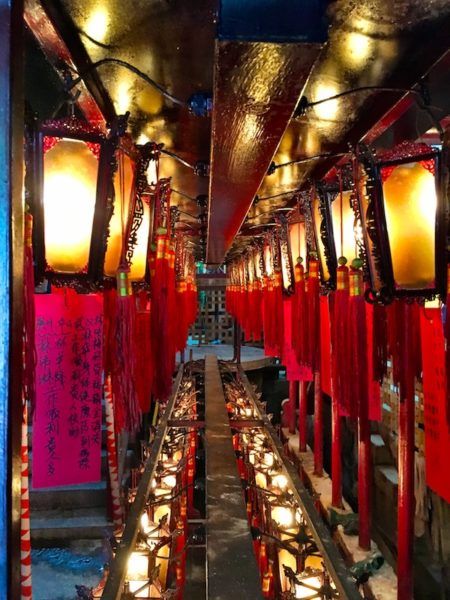
Things to do in Hong Kong
While Hong Kong is a very user-friendly city, I adored doing the walking tour, as I really appreciated this cultural insight I’d never otherwise have received. Click below to check out some interesting an cost-effective things to do in Hong Kong:
Related Posts
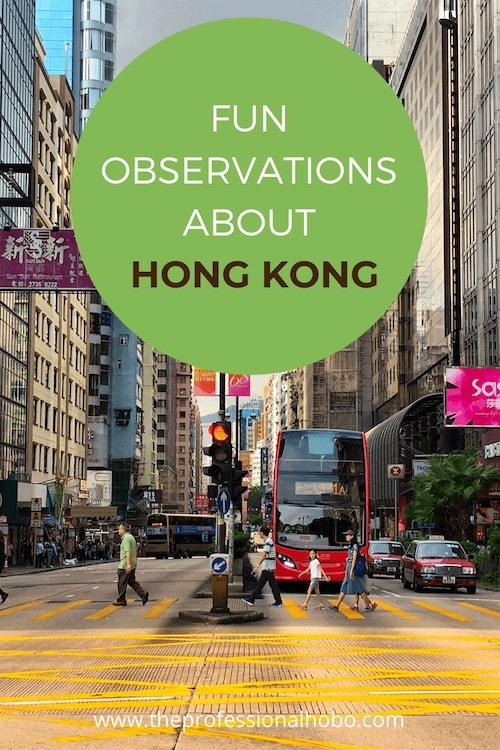



That was good, I’d say you accomplished your “mission” with this one…
Excellent! 🙂
You’re right about everyone just raving about Hong Kong – and I’m sure it’s every bit as awesome as everyone says. But it was good to see some of the not-so-awesome. We are not surprised at all about the cost of accommodation, although the size is a bit of a shocker. Thanks for “keeping it real!”
Thanks guys! Indeed, the size of my room bold me over as well. No amount of pictures prepared me for what I saw when I walked in there! Ha ha
Do remember $50 per night , you might not have a spacious room in US either. Shops around not inside the tourist main area then you might get a better deal.
I’d say this was worth it just for the food and that story.
HSBC for the win! Let those cannons loose! LOL
Glad you appreciated that story! I loved it – and I agree the whole trip was worth it for that, and the food. 🙂